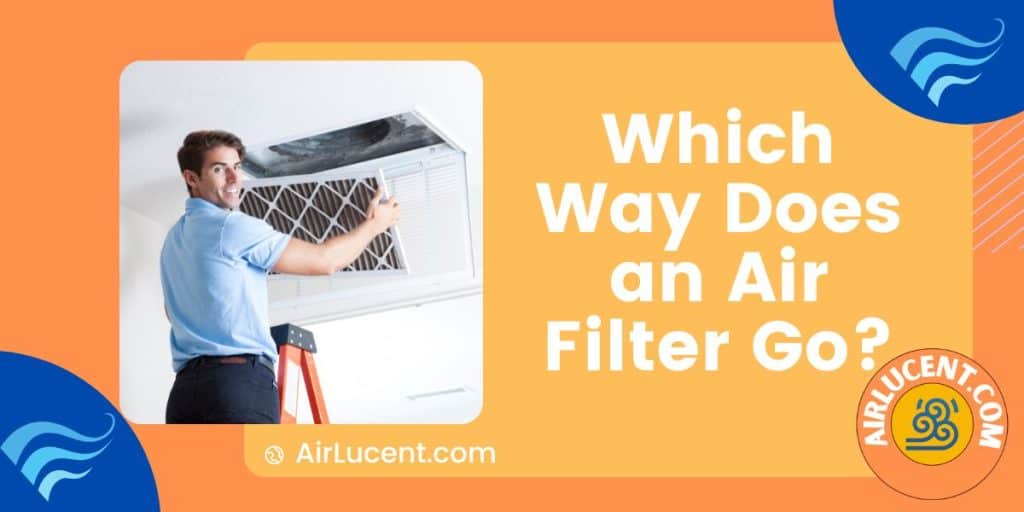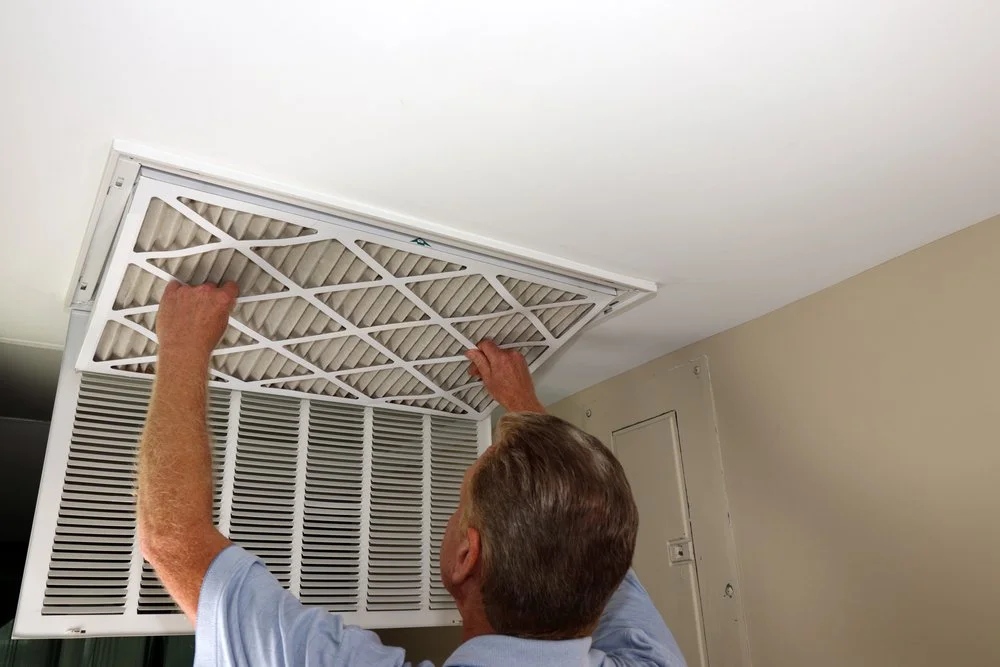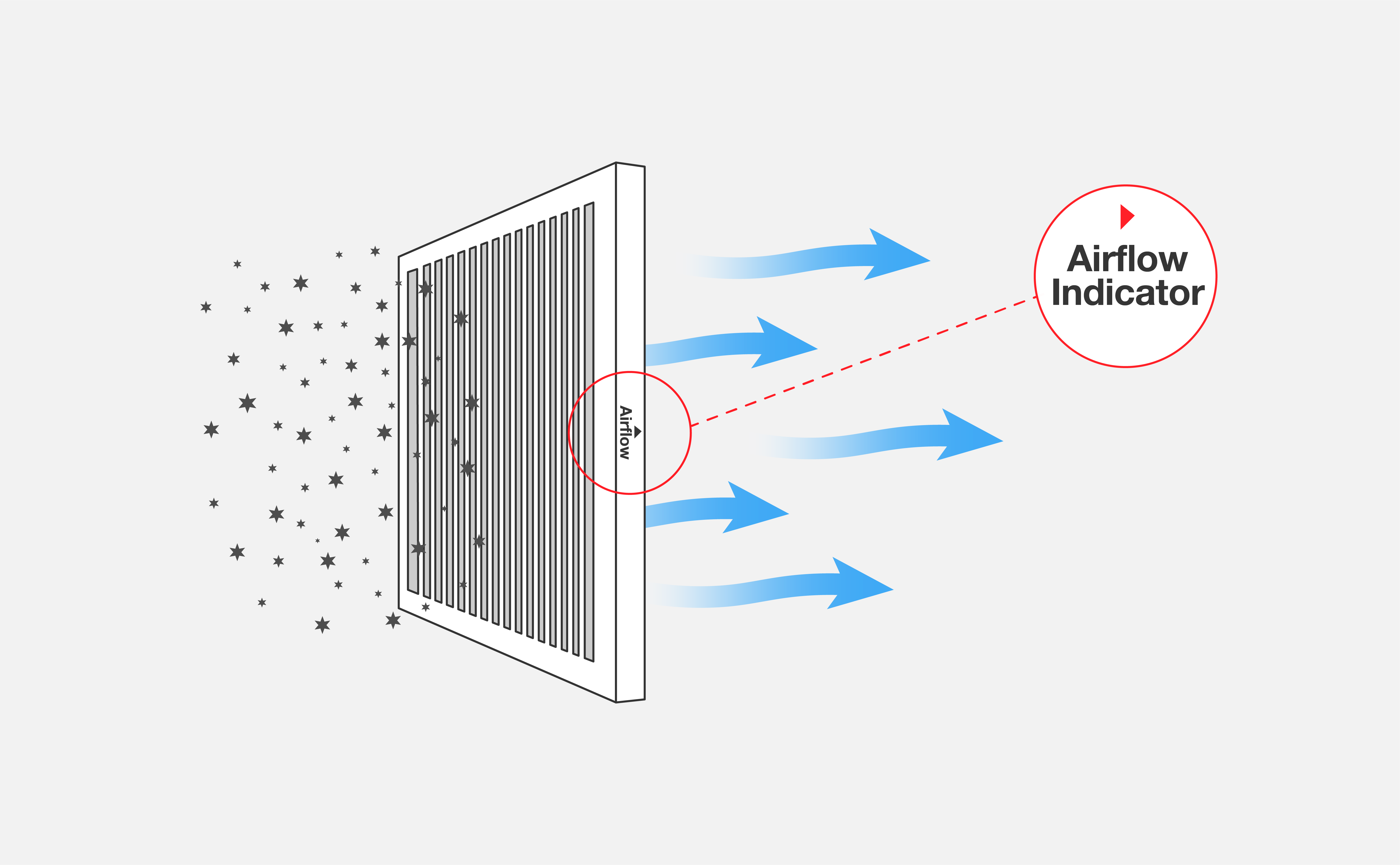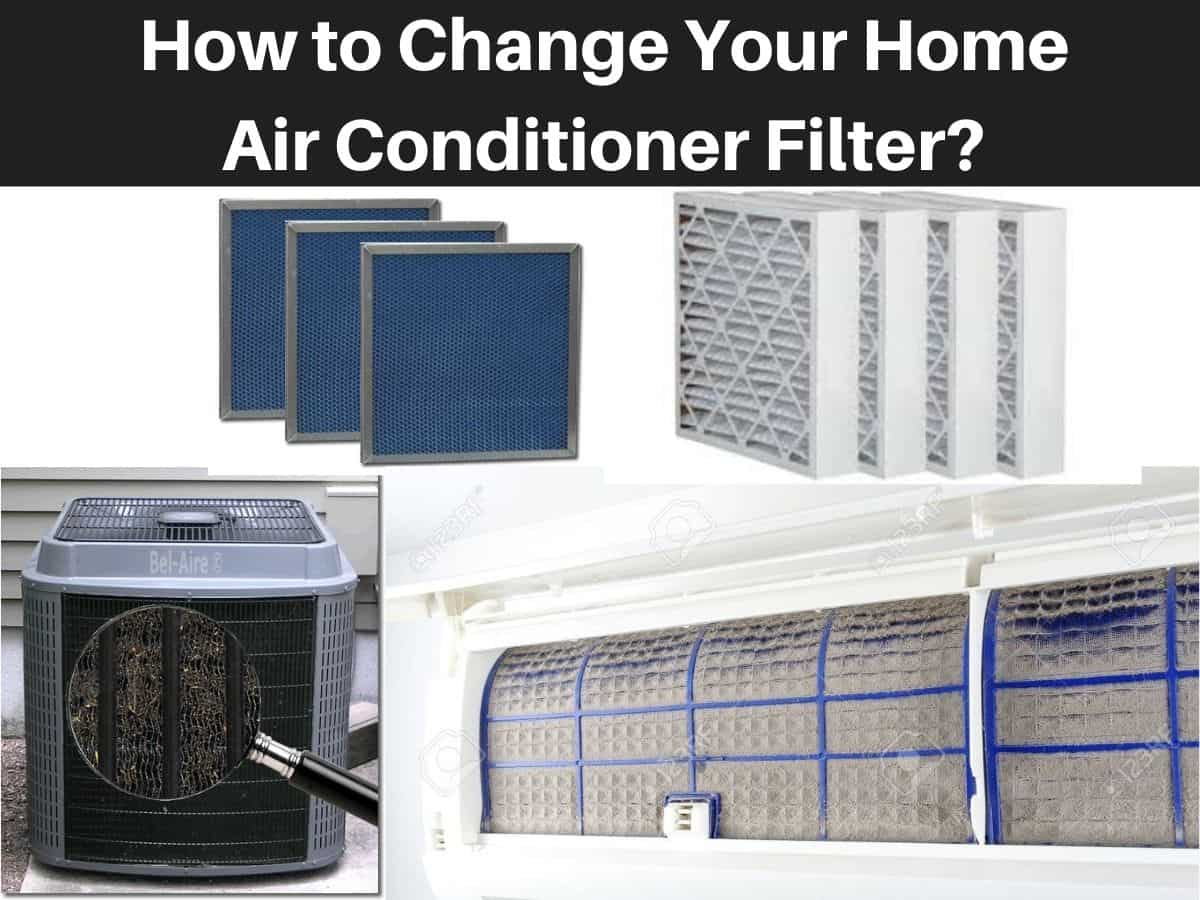Which Way Does Air Conditioner Filter Go
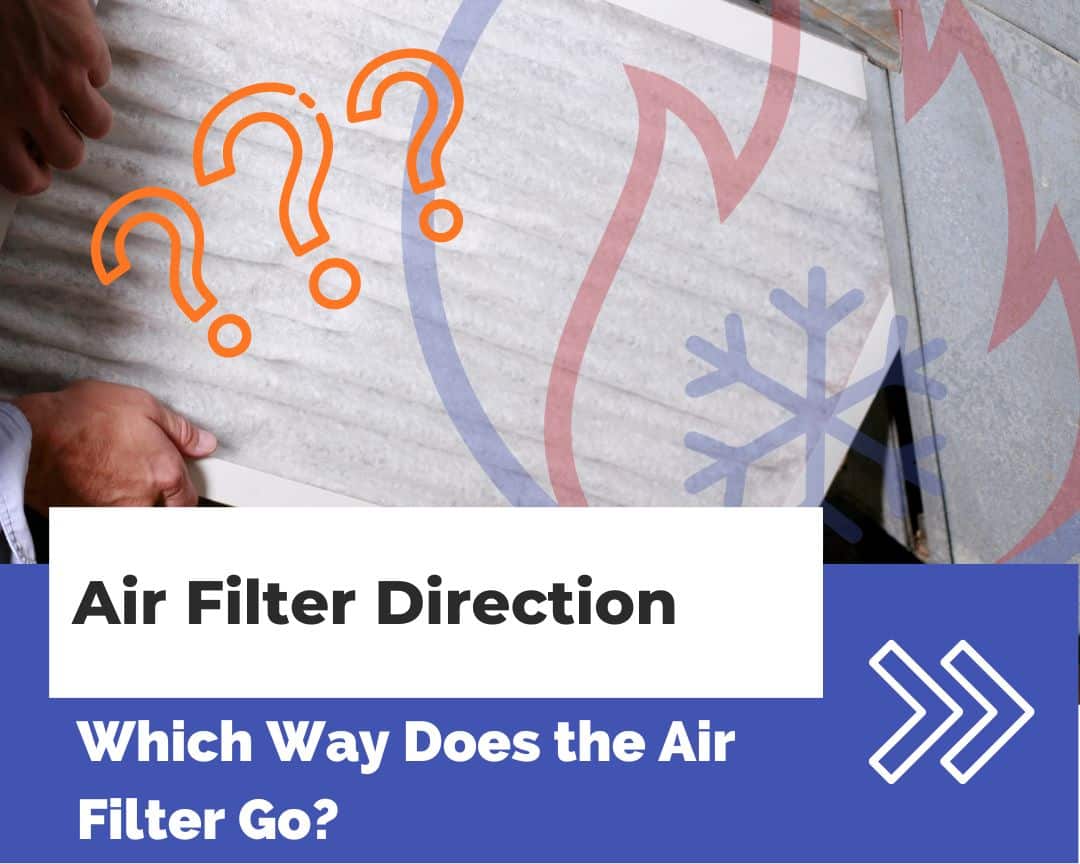
One of the most common frustrations for homeowners, especially as seasons change, is a struggling air conditioner. You might notice it's not cooling as efficiently as it used to, your energy bills are inexplicably higher, or perhaps you're even hearing strange noises coming from your HVAC system. Often, the root cause is something surprisingly simple: an improperly installed air conditioner filter.
The Case of the Misaligned Filter: Initial Diagnosis
Before you call a costly technician, let's investigate. The first step is to carefully examine your air conditioner filter and its housing. This is a straightforward process, and understanding it will save you time and potentially a lot of money.
Step 1: Locate the Filter
The location of your air conditioner filter varies depending on your system type:
- Forced-air furnaces: The filter is usually located within the furnace itself, often in a slot on the side or bottom of the unit. You may need to remove an access panel.
- Central air conditioning: Sometimes, the filter is located in the return air vent – a large vent, typically in a hallway, where air is drawn back into the system.
- Window units: These usually have a removable front panel that reveals the filter.
Safety First: Before you start poking around, always turn off the power to your HVAC system at the breaker box. This prevents accidental shocks and protects the equipment. If you're dealing with a window unit, unplug it.
Step 2: Observe the Filter's Orientation
Now, carefully remove the filter. Pay close attention to which direction it was facing. Most filters have an arrow printed on the side. This arrow indicates the direction of airflow. The arrow should point towards the blower motor, indicating the direction the air is being sucked into the system.
Take a picture with your phone! This is an incredibly helpful step. It's easy to forget the orientation later, and a photo will serve as a perfect reference.
Step 3: Inspect the Filter's Condition
While the filter is out, take a close look at it. Is it clogged with dust, dirt, and debris? A severely dirty filter restricts airflow, making your air conditioner work harder and less efficiently. It can also allow allergens and pollutants to circulate throughout your home.
If the filter is excessively dirty, it's time for a replacement. Even if the filter *looks* relatively clean, it's generally recommended to replace it every 1-3 months, depending on your environment and the type of filter you're using. Homes with pets or allergies may need more frequent changes.
DIY Fixes: Correcting the Filter's Orientation
Okay, so you've identified the problem: the filter was installed backward. Don't worry; it's a common mistake! Here's how to fix it:
Step 1: The Arrow is Your Guide
The arrow on the filter must point in the direction of airflow. Typically, this means the arrow points towards the furnace or air handler (where the blower motor is located) or away from the return air vent (where the air is being drawn in). If you took a picture earlier, now is the time to consult it.
Step 2: Re-Installation
Slide the filter back into its slot, making sure the arrow is facing the correct direction. Ensure the filter is snug and properly seated. If you removed an access panel, carefully replace it.
Step 3: Power Up and Observe
Restore power to your HVAC system at the breaker box (or plug in your window unit). Turn on your air conditioner and listen carefully. Is the airflow stronger? Does the system sound less strained? It might take a little while to notice a significant difference, but you should observe some improvement.
Choosing the Right Filter: A Quick Guide
While you're at it, it's a good idea to understand the different types of air conditioner filters and choose the right one for your needs:
- Fiberglass filters: These are the cheapest and most basic filters. They primarily protect the HVAC equipment from large particles. They're not very effective at removing allergens or pollutants.
- Pleated filters: These filters have a higher surface area due to their pleated design, allowing them to capture more dust, pollen, and other particles. They offer better filtration than fiberglass filters.
- HEPA filters: High-Efficiency Particulate Air (HEPA) filters are the most effective at removing small particles, including allergens, bacteria, and viruses. They are often recommended for people with allergies or respiratory problems.
When selecting a filter, pay attention to its MERV (Minimum Efficiency Reporting Value) rating. The higher the MERV rating, the more effective the filter is at capturing small particles. However, filters with very high MERV ratings can restrict airflow, potentially straining your HVAC system. A MERV rating of 8-12 is generally a good balance between filtration and airflow for residential use.
When to Call a Professional: Recognizing More Serious Issues
While a misaligned or dirty filter is a common problem, it's essential to recognize when the issue might be more serious and requires professional help. Here are some signs that you should call an HVAC technician:
- The air conditioner is still not cooling properly after replacing the filter. This could indicate a refrigerant leak, a faulty compressor, or other mechanical problems.
- You hear strange noises coming from the HVAC system, such as banging, grinding, or hissing. These noises could indicate a serious mechanical issue that needs immediate attention.
- The air conditioner is constantly cycling on and off. This is known as short cycling and can be caused by a variety of problems, including a refrigerant leak, a dirty condenser coil, or a malfunctioning thermostat.
- You notice ice forming on the evaporator coil. This is usually a sign of restricted airflow or a refrigerant leak.
- You suspect a refrigerant leak. Refrigerant is a harmful substance, and only a qualified technician should handle it.
- You're uncomfortable working with electricity or the HVAC system itself. It's always best to err on the side of caution and call a professional if you're unsure about anything.
Specifically, if you see any of the following, do not attempt DIY repairs and call a professional immediately:
- Electrical arcing or burning smells: These are clear signs of electrical problems and pose a serious fire hazard.
- Visible refrigerant leaks: Refrigerant is a hazardous substance, and direct contact can cause skin and eye irritation.
- Major mechanical failures (e.g., a broken fan blade): These issues require specialized tools and expertise.
Remember, a well-maintained air conditioner will not only keep you comfortable but also save you money on energy bills and extend the lifespan of your equipment. By regularly checking and replacing your air filter and knowing when to call a professional, you can keep your HVAC system running smoothly for years to come.
Preventative Measures: Keeping Your System Healthy
Beyond proper filter installation, here are a few preventative measures to keep your air conditioner functioning optimally:
* **Regular Filter Changes:** As mentioned earlier, replace your air filter every 1-3 months, or more often if you have pets or allergies. * **Clean the Outdoor Unit:** Periodically clear away any debris (leaves, grass clippings, branches) from around the outdoor unit (condenser). Ensure there's at least two feet of clearance around the unit for proper airflow. * **Schedule Professional Maintenance:** Have your HVAC system professionally inspected and serviced at least once a year. A technician can identify and address potential problems before they become major issues. This usually includes cleaning the coils, checking refrigerant levels, and inspecting electrical components. * **Consider a Programmable Thermostat:** A programmable thermostat allows you to set different temperatures for different times of the day, saving energy and reducing wear and tear on your air conditioner. * **Seal Air Leaks:** Seal any air leaks around windows, doors, and other openings in your home. This will help prevent conditioned air from escaping and unconditioned air from entering, making your air conditioner more efficient. * Don't Block Vents: Ensure that furniture, rugs, and other objects don't block air vents, restricting airflow and forcing your HVAC system to work harder.Conclusion: Empowering You to Maintain Your Comfort
Maintaining your air conditioner doesn't have to be a daunting task. By understanding the basics of filter installation and knowing when to seek professional help, you can keep your system running smoothly and efficiently. Taking these simple steps will not only ensure your comfort but also save you money in the long run.
Remember, a little preventative maintenance goes a long way! By following these tips, you can enjoy a cool and comfortable home all summer long.

